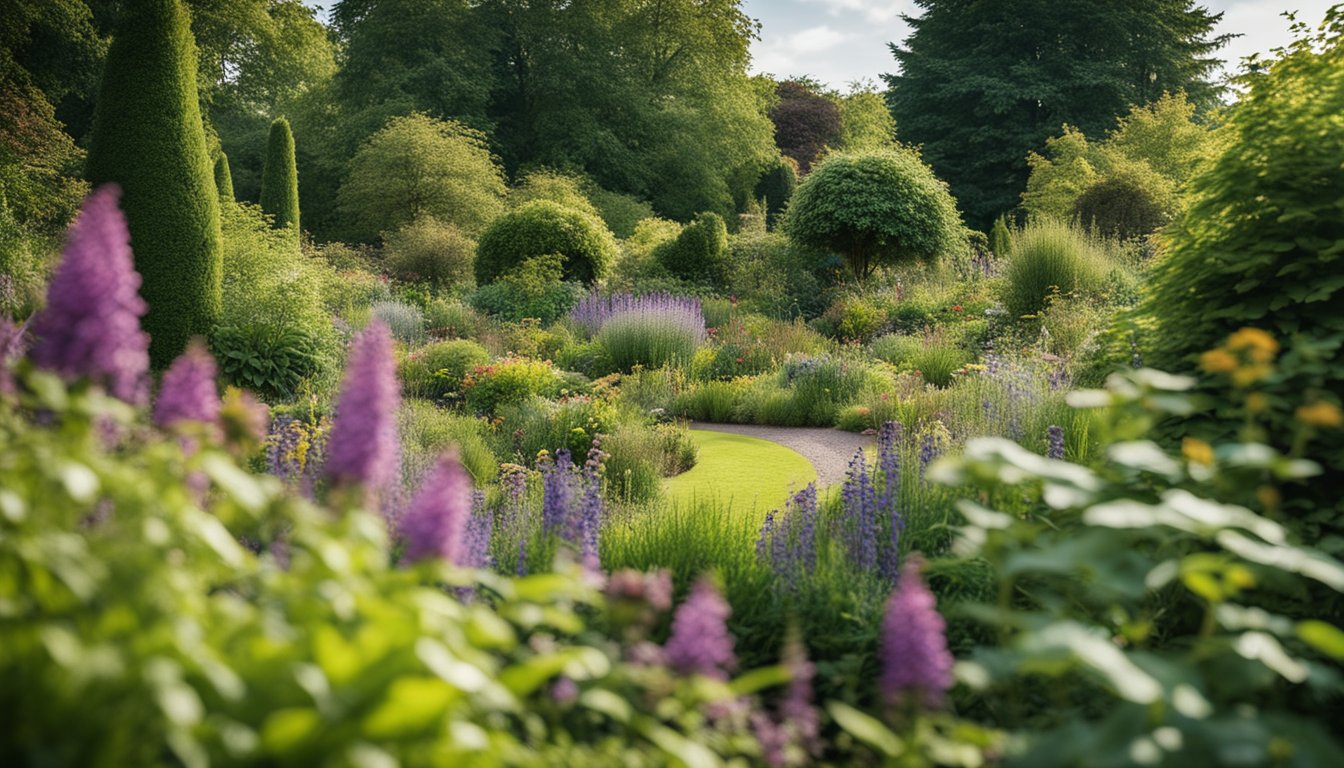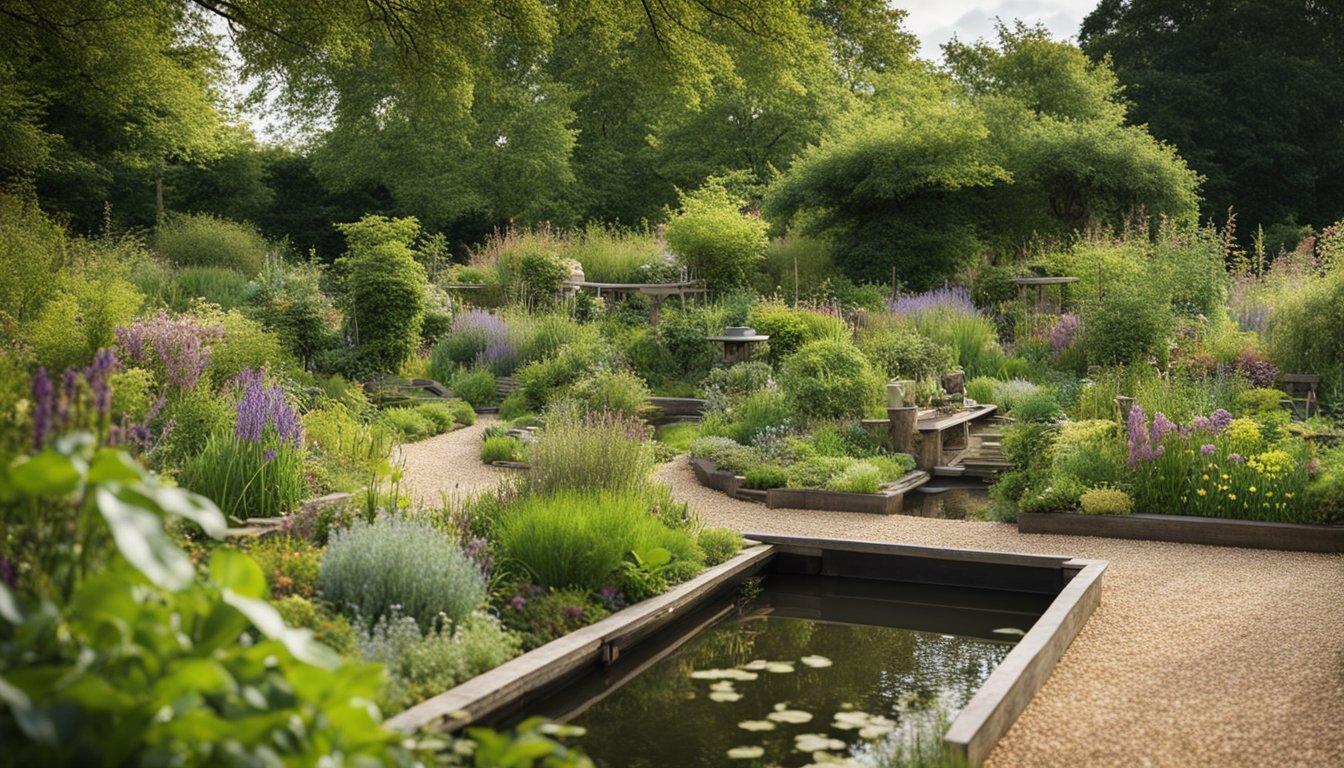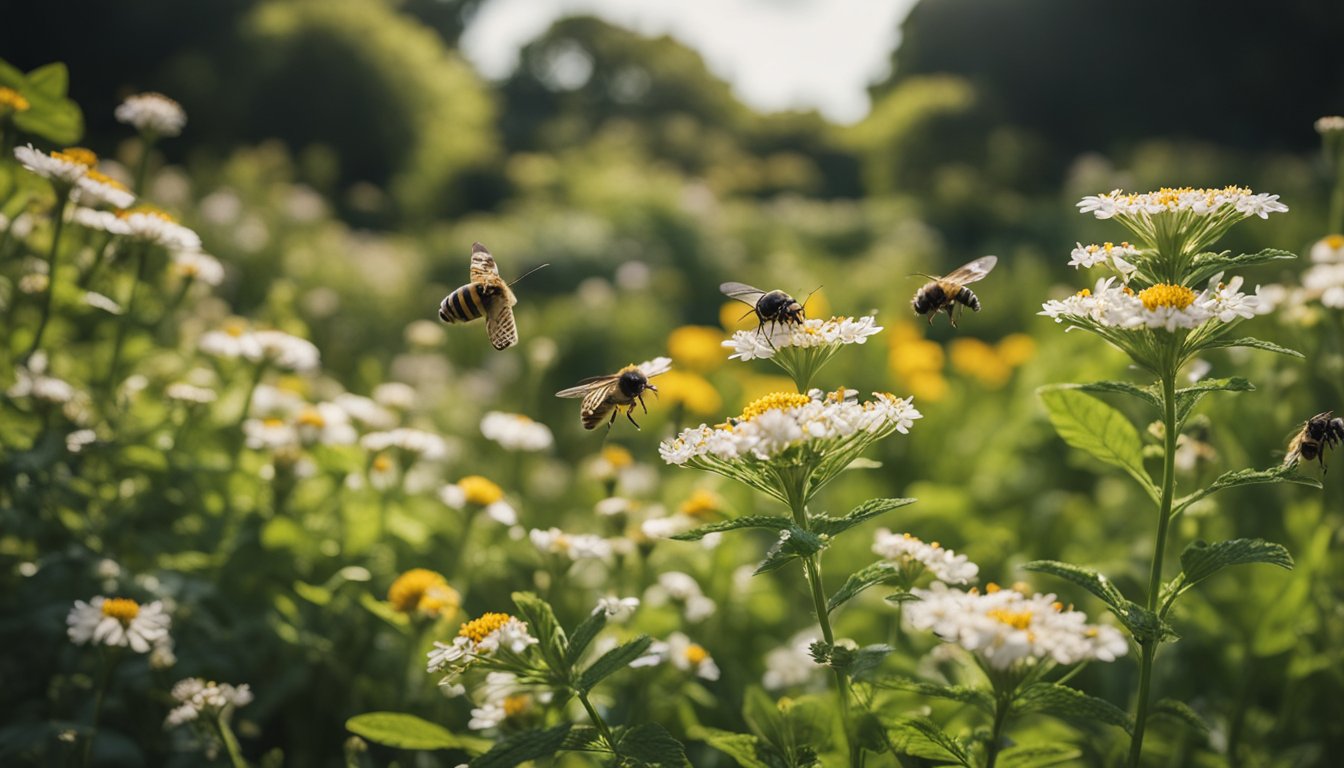Late updated: 08 Aug 2024 08:08
Written by: Emily Thornton
Enhancing Garden Biodiversity With Native UK Plants: Boosting Ecosystems in Your Backyard
Enhancing the biodiversity in our gardens is a significant step towards fostering a healthier ecosystem. Incorporating native UK plants into our garden designs can dramatically improve local biodiversity, providing essential habitats and food sources for a variety of wildlife. Native species are particularly well-suited to thrive in our regional climate, which ensures they require less maintenance while supporting birds, insects, and mammals.

By selecting plants such as ivy, crab apples, and various indigenous shrubs, we create a welcoming environment for local wildlife. Oaks, for instance, can support an astounding 2,300 species, but even smaller trees and shrubs contribute significantly to biodiversity. A garden rich in native plants is not just a step towards sustainability; it also brings life and vibrancy to our green spaces.
Imagine a garden buzzing with bees, butterflies, and birds, all benefiting from the thoughtful selection of native plants. This vision is not just achievable but essential for promoting a resilient and vibrant ecosystem right in our backyards. A biodiverse garden is an investment in the future of our local environment.
Key Takeaways
- Native UK plants enhance garden biodiversity.
- Indigenous shrubs and trees create essential habitats for wildlife.
- Thriving biodiversity leads to vibrant and resilient ecosystems.
Creating Habitats for Wildlife

To create a wildlife-friendly garden, we need to focus on selecting native plants and trees, providing food and shelter, and incorporating water features. These elements ensure our garden supports local biodiversity and offers essential resources for various species.
Selecting Native Plants and Trees
Choosing native plants and trees helps establish a balanced ecosystem. Native UK plants like bluebells and primroses attract pollinators such as bees and butterflies. For trees, species like oak and hawthorn offer sustenance and nesting sites for birds.
By planting a variety of native species, we provide habitats for a diverse array of insects, mammals, and birds. This improves the ecological health of our garden and requires fewer resources, as native plants are already suited to the local climate.
Examples of native plants and trees:
- Wildflowers: Bluebells, primroses
- Shrubs: Hawthorn, blackthorn
- Trees: Oak, birch, rowan
Providing Food and Shelter
Wildlife needs food and shelter to thrive. Hedgerows made of native shrubs like hawthorn offer cover and nesting spaces for birds and small mammals. Twig and leaf piles serve as habitats for insects and amphibians.
Creating a compost heap supports decomposers such as earthworms, enriching the soil and providing food for larger animals. Adding a hedgehog house or bug hotels can further attract beneficial wildlife.
Long grass and wildflower meadows also support pollinators by providing sources of nectar. Nettles might seem unappealing but are vital for butterfly larvae.
Water Features and Their Importance
Water sources are crucial for sustaining wildlife. Installing a pond or mini pond can attract amphibians, insects, and birds. Ponds should have shallow edges to allow easy access for all creatures.
Adding a bird bath ensures birds have a place to drink and bathe. Regularly freshening the water helps keep it clean and safe. Small water sources like puddles or shallow dishes can aid insects and small mammals.
Incorporating water features not only creates a habitat but also enhances the aesthetic value of our garden. To maintain these features, we must monitor water quality and regularly remove debris.
Year-Round Garden Care and Plant Selection
Maintaining a vibrant garden that supports local biodiversity requires careful planning and timely interventions. Our focus is on selected native UK plants and practices that promise a thriving garden through every season.
Seasonal Planting for Sustained Support
Native plants can enhance garden biodiversity by providing resources for local wildlife. In spring, early flowering plants like primrose and forget-me-not offer nectar for pollinators emerging from dormancy. By summer, species such as honeysuckle and foxglove support bees and hummingbirds with their vibrant blooms.
Autumn presents an opportunity to plant berry-producing plants like crab apples and dog rose, feeding birds and small mammals as other food sources dwindle. For winter, evergreens like ivy sustain a habitat and food for diverse species.
Enhancing Soil and Plant Health
A healthy garden starts with rich, well-maintained soil. Adding compost helps improve soil structure, boosting nutrient content and microbial activity. We avoid using chemical pesticides to protect beneficial insects and soil organisms.
Rotating plant species each season can prevent soil exhaustion and reduce pest build-up. Encouraging sustainable landscaping practices, such as mulching and cover cropping, can promote environmental sustainability. By maintaining a variety of native plants year-round, our gardens can become resilient green spaces that support wildlife across all seasons.
Frequently Asked Questions

Enhancing garden biodiversity with native UK plants promotes sustainability, supports local wildlife, and improves the ecological balance of the garden. Below are some common questions on this topic, along with our detailed answers.
What plant species can be introduced to a UK garden to enhance local wildlife?
Native plants like hawthorn, ivy, and oak provide food and shelter for various species. Hawthorn offers berries for birds, while ivy provides nectar for bees. Oak supports numerous insects and birds. Including these plants creates a diverse habitat that benefits local wildlife.
How does establishing a wildlife-friendly garden contribute to biodiversity in the UK?
Creating wildlife-friendly gardens helps maintain the UK's native species. These gardens offer habitats and food sources, promoting species interactions. By choosing native plants, we support local ecosystems and contribute to conservation efforts, making our gardens vital havens for wildlife.
In what ways can gardeners encourage native species diversity within small garden spaces?
Even small gardens can support biodiversity by planting a variety of native species. Using vertical space with climbers like ivy maximises limited areas. Incorporating a mix of shrubs, flowers, and trees also creates different habitats, enhancing species diversity in compact spaces.
What are effective strategies for maintaining a low-maintenance garden that supports biodiversity?
Opting for native plants suited to local conditions reduces the need for watering and fertilisers. Mulching to retain soil moisture and suppress weeds, along with leaving areas undisturbed for wildlife, ensures a low-maintenance yet thriving garden. Selecting drought-tolerant species further decreases upkeep.
How do native plants improve the ecological balance of a domestic garden?
Native plants are adapted to local soils and climates, requiring fewer resources. They support pollinators and other wildlife, enhancing the ecological balance. Additionally, their deep root systems prevent soil erosion, maintaining soil health and promoting a stable garden ecosystem.
What initiatives can individuals take to attract a variety of wildlife to a UK garden?
Plant a diverse range of native flowers to provide continuous blooms throughout seasons. Install bird feeders and bat boxes and create water features like ponds for amphibians. Also, consider leaving leaf piles and logs as shelters for insects. These initiatives collectively attract varied wildlife to the garden.
